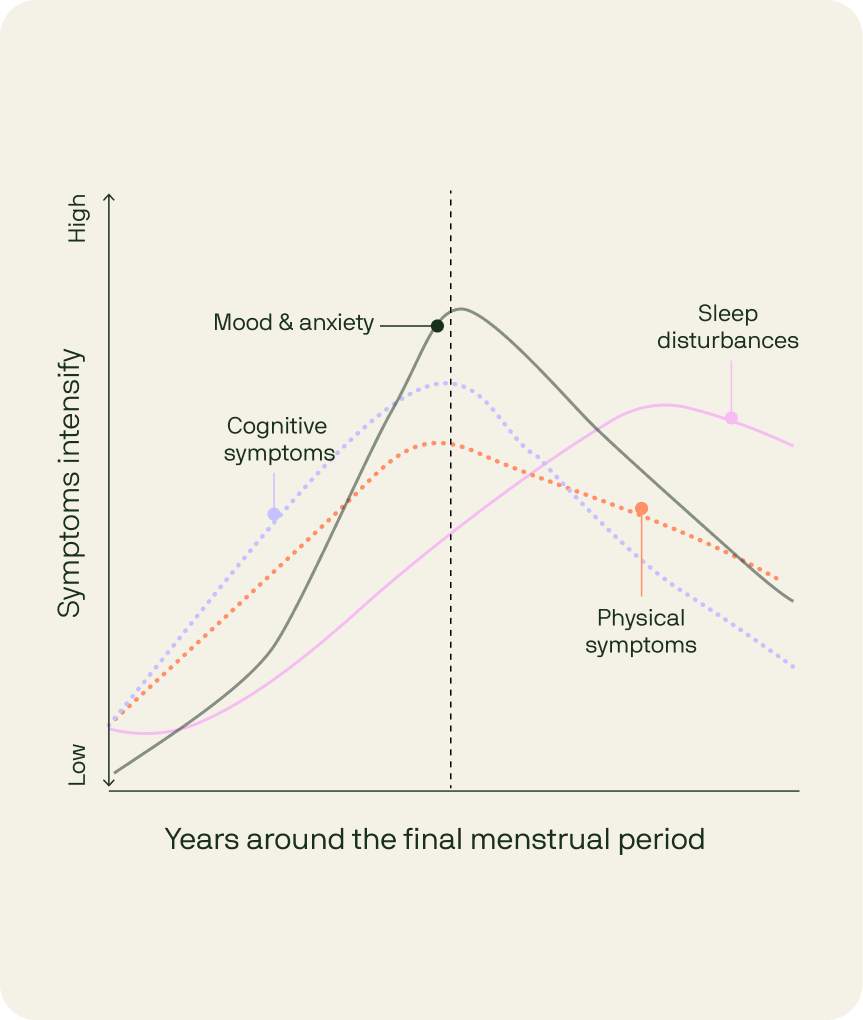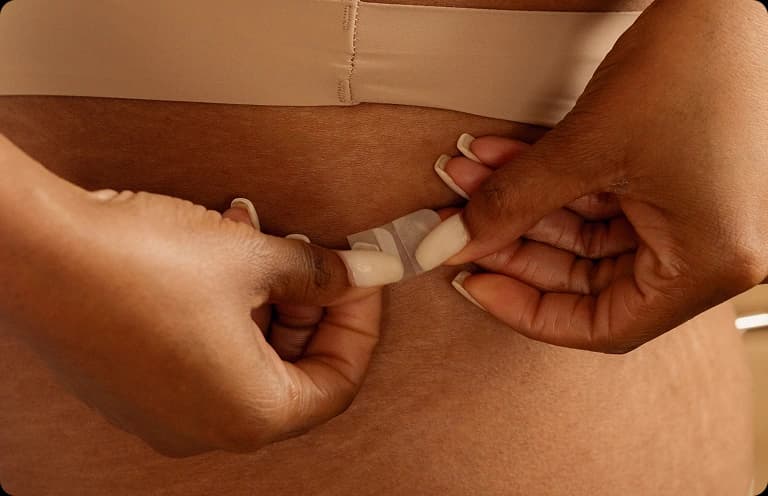PMDD — when hormones deeply affect your mood and
PMDD — when hormones deeply affect your mood and
It’s more than “just hormones.” PMDD, or PMDD and perimenopause together can make you feel like a stranger in your own skin. Our specialist doctors in PMDD and menopause can explain what’s happening to your hormones and build a plan to stabilise your mood.
Ready to talk to a specialist? Book an appointment with a PMDD and hormone specialist today

Understanding PMDD — it’s more than PMS
PMDD (Premenstrual Dysphoric Disorder) is not the same as PMS. It involves severe mood changes — deep sadness, irritability, hopelessness, or emotional withdrawal, that disrupt daily life and relationships.
Why women need specialist care for PMDD & menopause
At Voy, you’ll be supported by doctors with additional training in both PMDD and menopause. Our approach includes:

PMDD is often dismissed as “just hormones”, so many women go years without anyone joining the dots between their symptoms. Longer appointments give space to tell the full story of your cycle, mood and history – so nothing important gets brushed aside.

Clear explanations of how hormone changes affect neurotransmitters like serotonin, GABA, and dopamine — the “chemistry” behind mood.

We focus on accurate diagnosis and personalised HRT — not default antidepressants or contraceptives. Our expert-led plans combine hormone therapy with nutritional and psychological support once your hormones are balanced.

How PMDD changes during menopause
During perimenopause, fluctuating oestrogen and progesterone can trigger sharper hormonal swings, intensifying PMDD symptoms.
Mood changes, fatigue, and sleep issues often become less predictable, and some women experience PMDD-like patterns for the first time in midlife.
How Voy works
- 1
Start with an appointment
45 minutes with a doctor to discuss symptoms, hormone history, and emotional patterns.
- 2
Clinical assessment
Your clinician analyses whether hormone stabilisation with HRT is suitable and will explain your treatment options.
- 3
Your personalised plan
You’ll co-create a personalised plan, HRT plus optional CBT, supplements, or nutrition support, and unlimited support including WhatsApp & check-ins.
of women in perimenopause experience severe PMS or PMDD-type symptoms, according to clinical guidance, highlighting how hormonal shifts in midlife can intensify premenstrual mood changes.

Does this sound like you in the two weeks before your period?
Here are some of the key symptoms to watch out for when Premenstrual Dysphoric Disorder (PMDD) overlaps with or is affected by the transition to Menopause (and/or perimenopause).
Book to speak with one of our specialists online.

“ I’ve had women cry with relief when they finally meet someone who gets it — who recognises the exhaustion, the self-doubt, and the fear that something deeper is wrong.
That’s what drives me: helping women make sense of what’s happening to their bodies and minds, giving them back a sense of control, and showing them that they can feel like themselves again.”

“I’ve seen patients of every age struggle with the impact of hormones on their wellbeing. I’m passionate about supporting all women, and especially those living with PMDD, who often experience some of the most severe and life-disrupting symptoms. Improving women’s health has become my mission. I love to witness my patients’ journeys when they master their health.”
Treatment options for PMDD
Science-back and safely prescribed by our doctors.

The most effective treatment for PMDD in perimenopause and menopause.

Recommended treatment (after stabilising your hormones)

"PMDD treatment is not usually the contraceptive pill. The pill often contains synthetic hormones that can worsen symptoms for some women."

If you don’t feel like yourself for half the month, that’s a problem worth treating.
Specialist doctors in PMDD and menopause help you join the dots between your cycle, mood and hormones – and plan how to feel steadier.
Learn